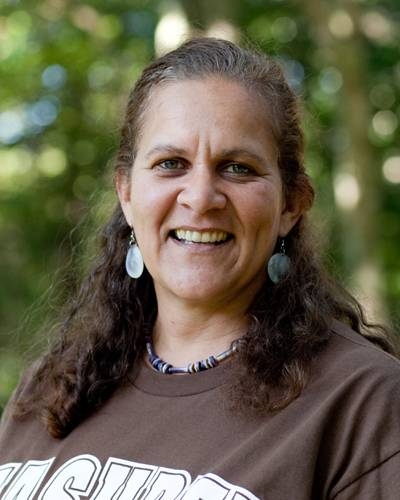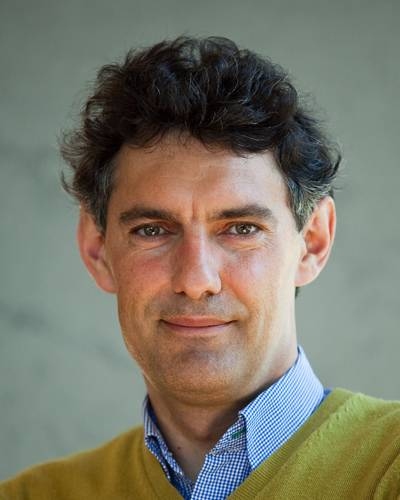MIT Professor of Physics Nergis Mavalvala PhD ’97, whose research focuses on detecting gravitational waves created in the violent collisions of stars and in the earliest moments of the universe, and two other Institute alumni have won 2010 MacArthur Fellowships, also known as “genius” grants.
The fellowships, awarded each year, carry a $500,000 purse that recipients may use as they see fit. Mavalvala is one of 23 recipients this year.
Since her graduate-school days at MIT, Mavalvala has been working on building more sensitive instruments to detect gravitational waves, whose existence Albert Einstein first predicted in 1916. Such waves, which carry information on the motions of objects in the universe, are so faint that they have never been detected. Scientists believe that by measuring gravitational waves, they will be able to observe phenomena never before seen.
“Everything we know about the universe, both nearby and distant, comes from measuring light,” said Mavalvala. “Gravitational waves are another messenger. Being able to look into the universe with that completely new tool, we should learn new and enormously interesting things.”
For example, gravitational waves should help scientists get a much better look at the space that surrounds black holes. Because black holes absorb light, traditional telescopes reveal little about the regions surrounding them.
It should also be possible to detect gravitational waves that began in the first few fractions of a second after the Big Bang, offering a glimpse into the formation of the universe.
Getting the call
Mavalvala, 42, learned about her award about 10 days ago, when she received a call from Daniel Socolow, director of the MacArthur Fellows Program. At first, “I thought he was calling for a recommendation for someone who had been nominated,” said Mavalvala. Even after Socolow assured her that she was a new fellow, Mavalvala was skeptical.
“I thought someone I knew was going to say ‘gotcha!’ and start laughing,” she said. “It didn’t really sink in until this morning when I woke up to 100 e-mails with the subject line ‘congratulations!’”
Mavalvala said she owes much of the credit for her success to her students and colleagues at LIGO (Laser Interferometer Gravitational-Wave Observatory), a project operated by Caltech and MIT and funded by the NSF that aims to detect gravitational waves and to develop gravitational-wave observations as an astronomical tool. “My work is very collaborative,” she said. “It’s a little embarrassing to be named as a recipient for the work of so many. It’s a great honor.”
Mavalvala said she will likely use the grant money to continue her gravitational-wave studies, though she also has a few “crazy ideas” in mind. “Something like this grant allows you to chase those crazy ideas that are risky in that they might not work, but if they do, the payoff would be great.”
Alumni winners
Two MIT alumni — linguist Jessie Little Doe Baird SM ’00, who is working to revitalize a long-silent Algonquin language, and economist Emmanuel Saez PhD ’99, who studies the relationship between income and tax policy — were also named 2010 MacArthur Fellows.
Research by Saez, an economics professor at the University of California, Berkeley, and director of its Center for Equitable Growth, focuses on wealth and income inequality, capital income taxation, and retirement. His recent honors include the American Economic Association’s John Bates Clark Medal, which is given annually to America’s most outstanding economist under 40.
Baird is working to revive Wampanoag (or Wôpanâak), the Algonquian language of her ancestors that was once spoken by tens of thousands of people in New England but became extinct in the 19th century. She founded the Wôpanâak Language Reclamation Project in Mashpee, Mass., and each summer she leads a weeklong language-immersion camp where only the Algonquin dialect is spoken (her daughter is already fluent). She is developing educational materials including children’s books, and she and MIT Professor of Linguistics Norvin Richards are writing a dictionary, now up to about 10,000 words.
When asked about the award for his fellow linguist, Richards said it was "hard to imagine a better person" to receive the grant.
"The world is currently in the middle of a massive wave of language extinction; some linguists estimate that 90 percent of the world's languages will vanish in the coming century," Richards said. "Against that backdrop, the success of the Wôpanâak Language Reclamation Project is a rare piece of good news. If Jessie succeeds, she will have shown that for languages, 'death' is not permanent; with enough dedication and hard
work, as long as a language is sufficiently well documented, we can hope to bring it back to life."
Additional reporting by Nancy Duvergne Smith, MIT Alumni Association, and by Emily Hiestand, School of Humanities, Arts, and Social Sciences
Physics professor and two alumni are awarded $500,000 in no-strings-attached funding.
Publication Date:

Caption:
MIT Professor of Physics Nergis Mavalvala PhD ’97 has won a MacArthur 'genius' grant.
Credits:
Photo courtesy of the MacArthur Foundation

Caption:
Jessie Little Doe Baird SM ’00
Credits:
Photo courtesy of the MacArthur Foundation

Caption:
Emmanuel Saez PhD ’99
Credits:
Photo courtesy of the MacArthur Foundation





